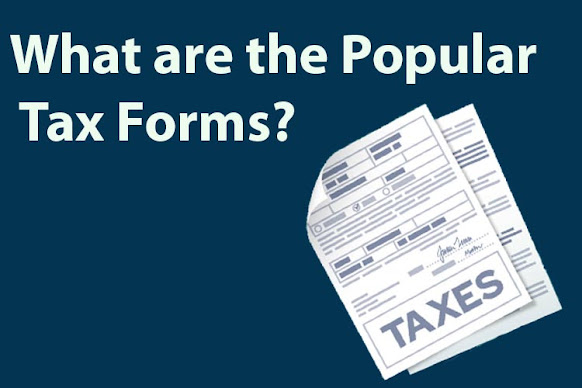If you often get confused between form 1040 and 1099, you are not alone. There are dozens of IRS tax forms, and most people must file more than one tax return form annually. It’s quite common to feel overwhelmed with so many forms. In this post, we have curated a list of tax forms that every taxpayer must know.
Form W-2
You get Form W-2 from your employer annually. It shows the total taxable amount that your employer has withheld from your salary. This form is important to know your annual taxable income, your earnings for the calendar year, and the amount withheld. Your employer also sends a copy of this form to the state authorities, IRS, and social security administration.
Form W-4
The Employer’s Withholding Allowance Certificate is drafted by someone who has joined a new company or has experienced a major change in their life that affects their taxable income. This form tells your employer how much tax they should withhold from your salary. Read the instructions carefully before filling out this tax form, as people often overpay and underpay taxes annually because of incorrect input.
Form 1040 (income tax returns)
This long and most comprehensive form details all the deductions, filing status, and the total taxable income you owe to the IRS. This form is for US taxpayers who make more than $100,000 annually, report earnings from the sale of real estate, and have more than one source of income. This form is also for people who do not report any taxable income but are eligible for a tax refund. Most taxpayers in the US use Form 1040 to report their earnings and taxable income.
Elder citizens above 65 must use the less complicated and shorter version of this annual tax return form, “Form 1040-SR,” to report their income from annuities, investments, retirement funds, etc.
Form 1099-MISC
If you are a freelancer or an independent contractor working for multiple employers, you will get form 1099-MISC instead of Form W-2. This form is issued by all employers that you have worked for in a calendar year. There are many variants of form 1099, and this one reports your earnings from sources that don’t have a separate category. For example, it covers your earnings from the lottery and awards.
Form 1099-G
You may receive income from the state authorities and the government throughout the year. It can be unemployment benefits, taxable grants, and other forms of earnings that the government withholds from your paycheck. To report this income, you need to file a Form 1099-G.
Form 1099-INT
Another 1099 form is for those earning $10 or above from the interest income annually. This can be issued by your bank or a financial institution that pays you interest on fixed deposits, and the amount exceeds $10 a year.
These were just to name a few. There are many such tax forms a US resident has to file with Form 1040 income tax returns. It’s best to work with an accountant to simplify the tax filing process.

Comments
Post a Comment